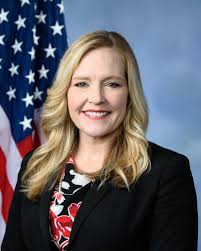
WASHINGTON, D.C. – Congresswoman Erin Houchin (IN-09) introduced four major legislative proposals to strengthen education, defend American institutions from foreign influence, support families in crisis, and improve outcomes for foster care children.

Each bill reflects Houchin’s commitment to promoting transparency, protecting vulnerable populations, and putting American families first.“These bills are focused on doing what’s right for the American people—protecting students, supporting families, and strengthening systems we rely on,” said Rep. Houchin. “Whether it’s ensuring taxpayer dollars aren’t funding institutions that break immigration laws or expanding access to end-of-life care for families, these bills are about accountability and common sense.”
The four bills introduced include:
- College Employment Accountability Act: This bill prohibits colleges and universities that hire illegal immigrants from receiving federal student aid or institutional funding. It also mandates participation in the E-Verify program and strengthens coordination between federal departments to enforce immigration laws.
- Safeguarding American Education From Foreign Control Act: This bill protects American educational institutions by increasing transparency and restricting foreign funding. It prevents adversarial nations from using financial influence to shape curriculum or policy at U.S. schools and universities.
- End-of-life Access to Supportive and Essential Care (E.A.S.E.) Act: Improves access to care for patients with terminal illnesses, ensuring families have options and support during end-of-life care.
- Foster Care Tax Credit: This program provides a federal tax credit to families who open their homes to foster children, helping reduce the financial burden and encouraging more Americans to consider becoming foster parents.
“These are practical, targeted bills that can make a meaningful difference in people’s lives,” Houchin added. “I’m proud to lead on these issues and will keep fighting to make Washington work for families in Indiana and across the country.”









.png)











